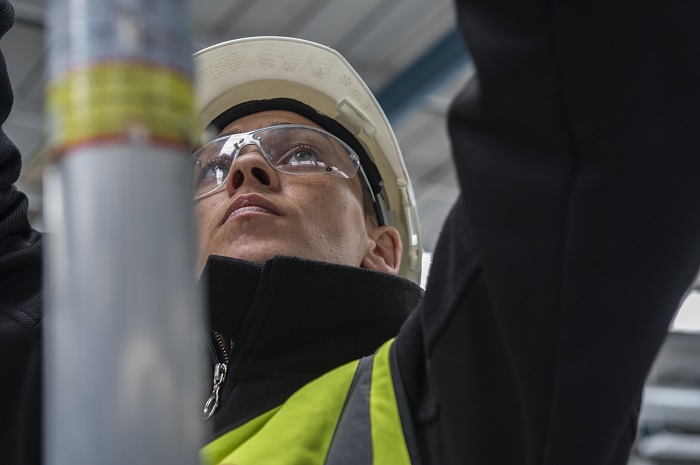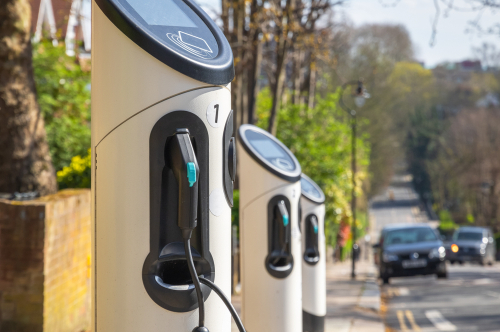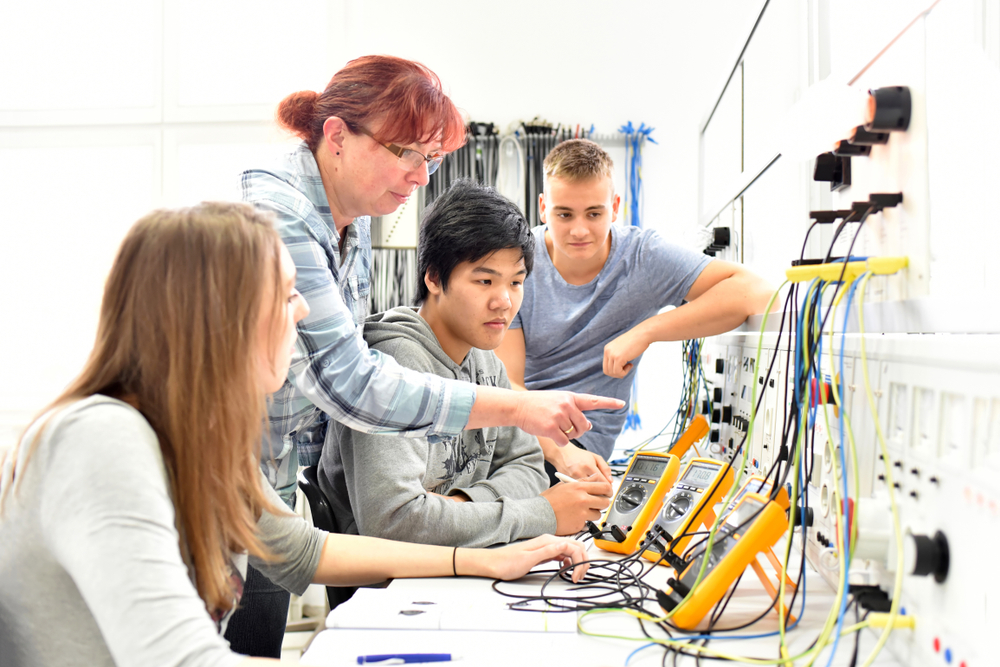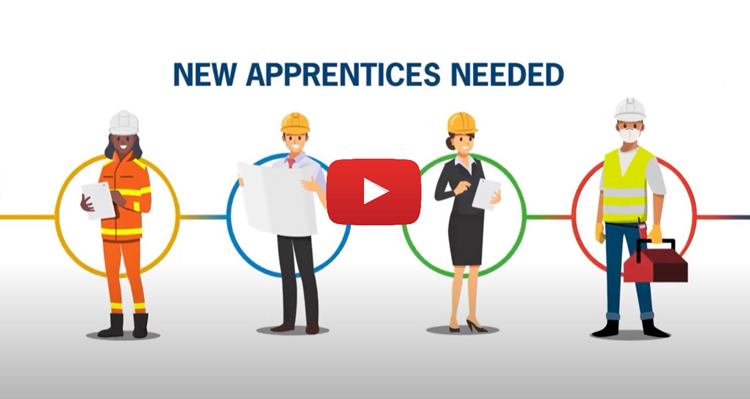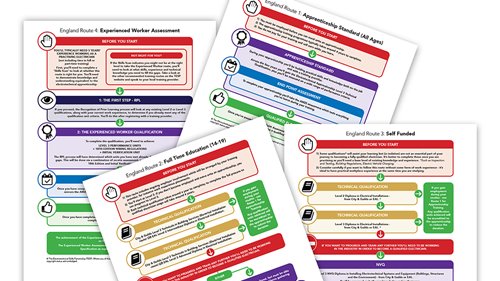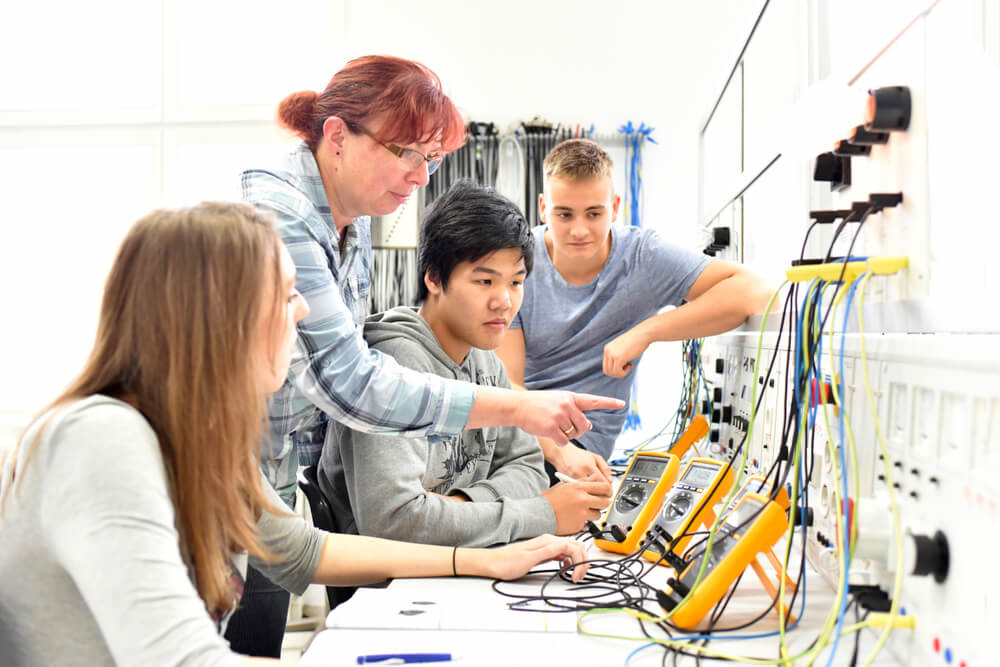Apprenticeship developments in England: improving standards and boosting recruitment

Andrew Eldred
Director of Workforce and Public Affairs, ECA

Improving standards
This year will see the completion and roll-out of an updated and improved Installation Electrician and Maintenance Electrician (IE/ME) apprenticeship standard in England – the first significant update to this apprenticeship since 2015.
The present review started in the middle of 2022 and is part of a wider overhaul of construction apprenticeships in England, overseen by the Institute for Apprenticeships and Technical Education (IfATE). Jill Nicholls of IfATE described for ECA members the rationale and priority objectives for this broader overhaul in an ECA webinar broadcast during National Apprenticeship Week last year.
Since then, the employer group responsible for reviewing the IE/ME standard – which includes ECA firms and staff among its members – has worked exceptionally hard to get the job done as quickly and thoroughly as possible. One reason for a sense of urgency has been the desire to incorporate more new technology content, including EV charging and introductions to solar PV, battery storage, micro wind, etc. Another reason has been to get funding for the standard up from £18,000 per learner, in order to take adequate account of the current costs of delivery.
More than 300 individuals and organisations took part in an industry-wide consultation on updated content for the apprenticeship during summer 2022, with an overwhelming number backing the proposed changes. With more work completed since then – including invaluable contributions from NET, JTL, EAL and City & Guilds – all that is left to do now is secure final IfATE and ministerial approval for the standard, assessment plan and funding band. It is hoped that this will come in the Spring, in which case training providers will have a few months, at least, to prepare for delivery of the updated IE/ME standard in the new (2023/24) academic year.
In some cases, the revised IE/ME standard will be delivered alongside the new, separate Domestic Electrician (DE) standard, previously rolled out at the start of the current (2022/23) academic year. The DE standard has been designed by employers to raise competence levels within the domestic market, including in connection with installation of low carbon applications, especially domestic EV charge-points. Awareness of the DE standard has been growing steadily and more training providers are preparing to add it their offering during 2023.
Work is also under way to update and improve the specialist Fire Emergency and Security Systems Technician (FESS) apprenticeship standard – first launched in 2017 and led by Pat Allen of FSA.
Boosting recruitment
Beyond the need to keep apprenticeship standards suitable and up to date, the greatest skills challenge confronting the electrotechnical sector throughout England is the need urgently to increase overall numbers of new entrants, including apprentice starts.
At an average of 350 starts per year, the FESS standard is one of the most successful of the new crop of apprenticeships in England. Nevertheless, numbers need to be greater still if FESS is to establish itself unambiguously as the preferred entry route for the specialist fire and security sector.
For electrical contracting, the hill to climb is even higher and steeper. Although electrical apprentice starts of 7,500 last year (2021/22) represented the highest annual intake in England in a long while, this figure still fell well short of the 10,000 new entrants needed each and every year to allow the sector in England both to replenish itself and to meet the growing market demand for electrotechnical skills.
The consequences of this shortfall, repeated again and again over the recent past, can be seen in ECA members’ ever greater concerns about labour and skills shortages – now the single biggest drag on engineering services business prospects, as reported in our quarterly BEBS business trends survey.
For this reason, ECA will be focussing ever more strongly during 2023 on doing all we can to boost members’ appetite and ability to take on new entrants, and thereby to invest in the future of the sector, as well as their own.
For a sustainable workforce, electrotechnical businesses need to recruit the equivalent of 4%-5% of their existing workforce as new entrants each year. Assuming four years to complete an apprenticeship, this equates to apprentices, plus any other new entrants (e.g. experienced workers, trainees), constituting 16%-20% of an average firm’s total operative workforce.
There are plenty of ECA members, both large and small and operating in every corner of England, who hit this target already, or even exceed it. As a trade body committed to securing our members’ future and that of the sector, ECA has a clear interest in amplifying the success which these exemplar businesses have achieved and to explore how others might be helped to replicate this success for themselves.
If, therefore, you an ECA member who either hits the 16%-20% benchmark already, or wants to find out more about how to go about it, then please get in touch with us now at educationandtraining@eca.co.uk.

Andrew Eldred
Director of Workforce and Public Affairs, ECA
Before joining ECA, Andrew spent four-and-a-half years as Crossrail’s Head of Employee Relations. Prior to this he worked for the Olympic Delivery Authority’s delivery partner, and for several years in employee relations roles at the BESA and the Engineering Construction Industry Association.
Andrew is a member of the JIB National Board, director of Evolve (formerly Blue Sky) Pensions Ltd,. a trustee-director of the apprentice training charity JTL and a regular guest lecturer at Exeter University’s Business School.
Related Articles
HR implications of a Labour Government
Careers Week 2024: consider an electrotechnical career!
General Election 2024: Why a shortage of electrical apprentices matters
Electrician Plus: the future of competence in our sector
An appeal to industry from education
Empowering young people for World Skills Day 2023
Lean into local learning
Make 2023 your year for fire and security training
Tackling recruitment and retention challenges
The Construction Route – what needs to change?
Apprenticeships off to a positive start
We need diversity more than ever. Here are 5 ways we can get there
New Training Opportunities for EV Charge Point Installers
Increasing Pay Pressures in Engineering Services
Don’t get taken for a ride by Rogue Trainers
Home Thoughts from Abroad: Skills Development
Home thoughts from abroad: Immigration
Home-thoughts from abroad: ‘What should they know of England who only England know?’
Back to the Future: Direct employment, the ‘gig’ economy and the lessons from history
IR35: the story behind the headlines
Looking back on 2020 with the JIB
Six reasons to hire apprentices
What’s the best way into the industry?
Why an operative-rating app leaves me feeling queasy…
Tackling unemployment post Covid-19
The importance of functional skills
Finding the best fit for your team? There’s an app for that
A Smart Career Move?
The future of furlough
IR35: essential steps to help you comply
Stopping the levy running dry
Do the maths, consider an electrotechnical career!
Opening the door to all
The Real Deal (At Last)?
Copyright © 2024 Electrical Contractors Association Ltd
.jpg?width=970&height=90&ext=.jpg)







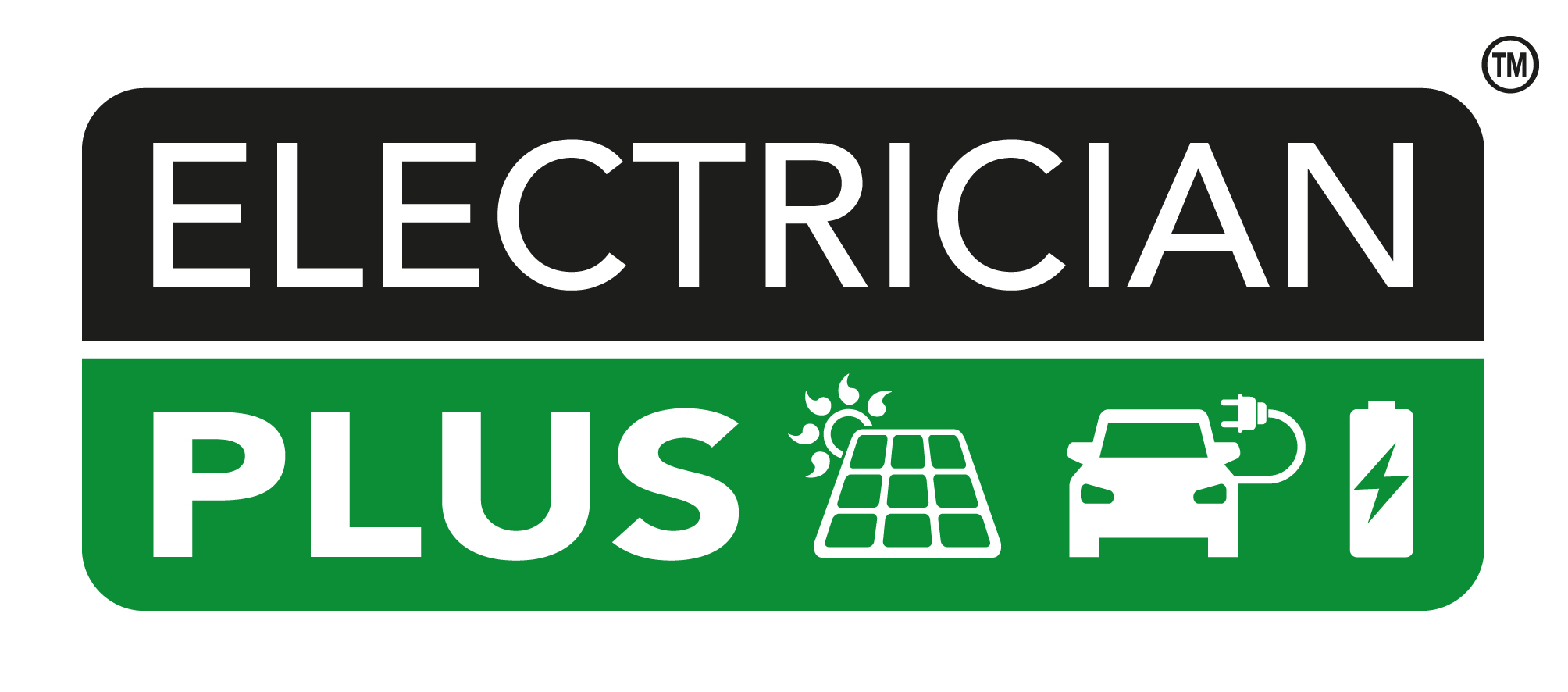



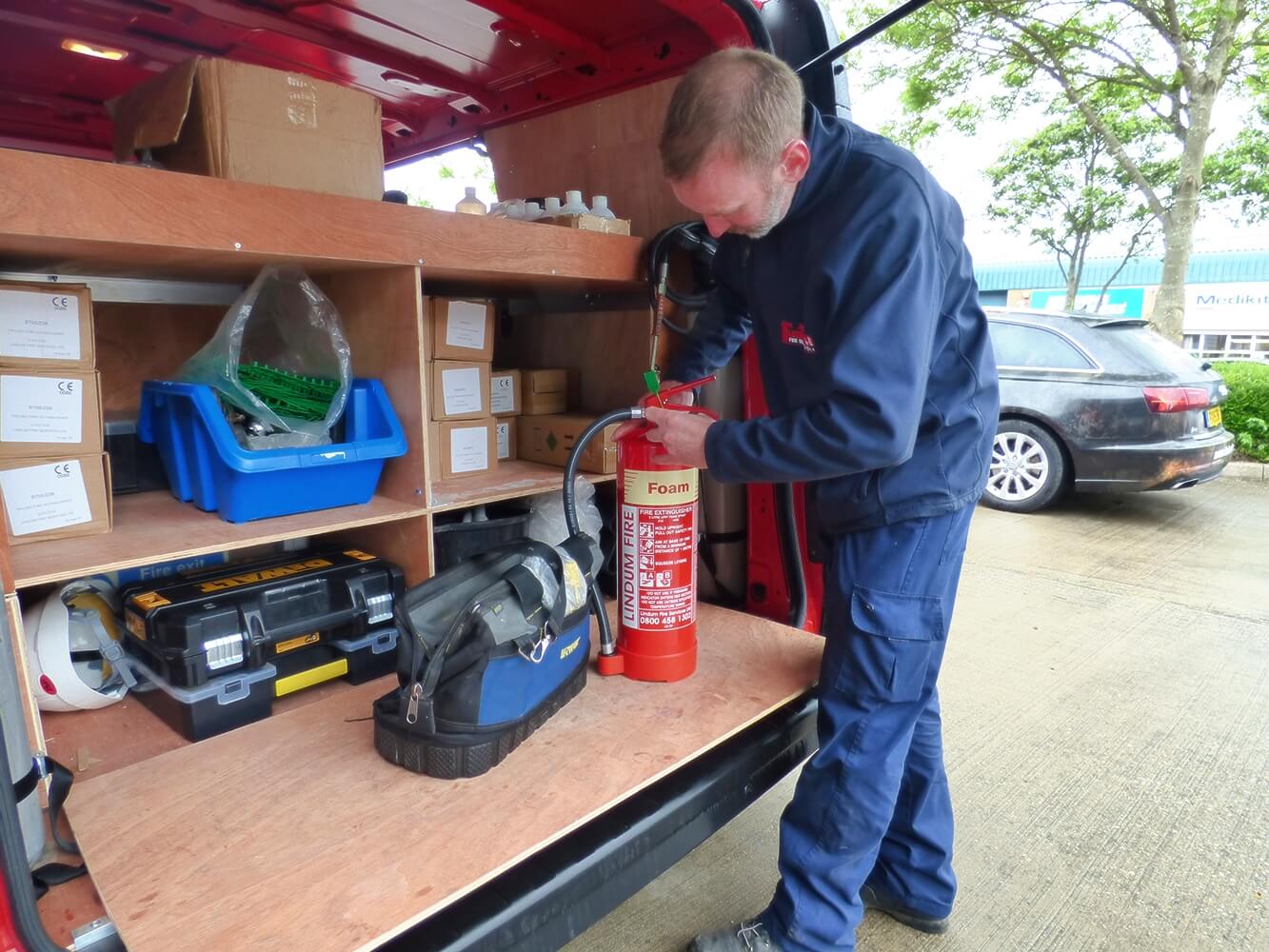



.jpg?width=700&height=466&ext=.jpg)
